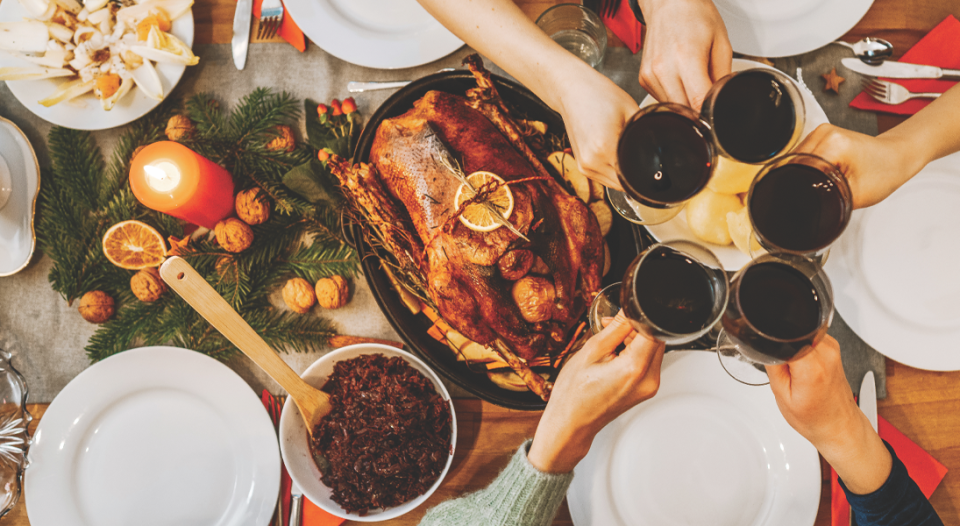One of my favorite Thanksgiving memories happened in holy surprise. I had been called to my first parish in Chicago, and traveling to see family wouldn’t be convenient.
My wife and I decided to have a small, intimate Thanksgiving meal at our new apartment and, following Jesus’ invitation to be hospitable to our neighbors, we invited two of her co-workers, both from China. It would be their first Thanksgiving in the States and we didn’t want them to spend it alone.
The thought of hosting guests new to our traditions and customs enlivened me. Despite our limited resources, we prepared a small turkey (and I spent hours watching YouTube videos on trussing it!), with stuffing, potatoes, green beans and some traditional side dishes. We turned on the parade, made plans to watch football and got out our fanciest dinnerware.
When our guests arrived, they came bearing dishes of their own, wanting to add to the feast. To our very American offerings we added short ribs, dumplings and a wonderful dessert roll that toed the line between savory and sweet.
When someone wants to add to your family’s feast, let them. When someone invites your family into a new way of hospitality, accept.
As we sat down to dinner, after a very thankful grace, one of our guests picked up the fork and puzzled at it. “Would you like chopsticks?” I asked. “Do you have any?” she said with excitement.
Away went our fancy flatware, and out came our ceramic chopsticks.
That Thanksgiving we ate turkey and potatoes, ribs and dumplings with our chopsticks, laughing and giving thanks for the unique moment. It remains one of my favorite memories and one of my most honest teaching moments in life.
When someone wants to add to your family’s feast, let them. When someone invites your family into a new way of hospitality, accept.
That feast was, I think, as close to a eucharist outside a congregation as I’ve ever had. It was certainly sacred, if not sacramental.
Practices
Look up traditionally festive foods from other cultures or from your family’s heritage. Include a dish or two at your Thanksgiving meal from those cultures and discuss with your family the importance of learning about all God’s people around the world.
Ask everyone to give thanks for something different on their plate for the feast prayer. Honor those who grew the food, picked it and got it to the table. God’s creative sustenance deserves an individual acknowledgment at least once a year.
Talk with your family about how the Bible often uses agrarian images to show God’s abundance. Discuss the idea that the miracle of seeds becoming food is a resurrection moment: the shoots burst from the ground to become a new creation, which we take in to become renewed ourselves.






